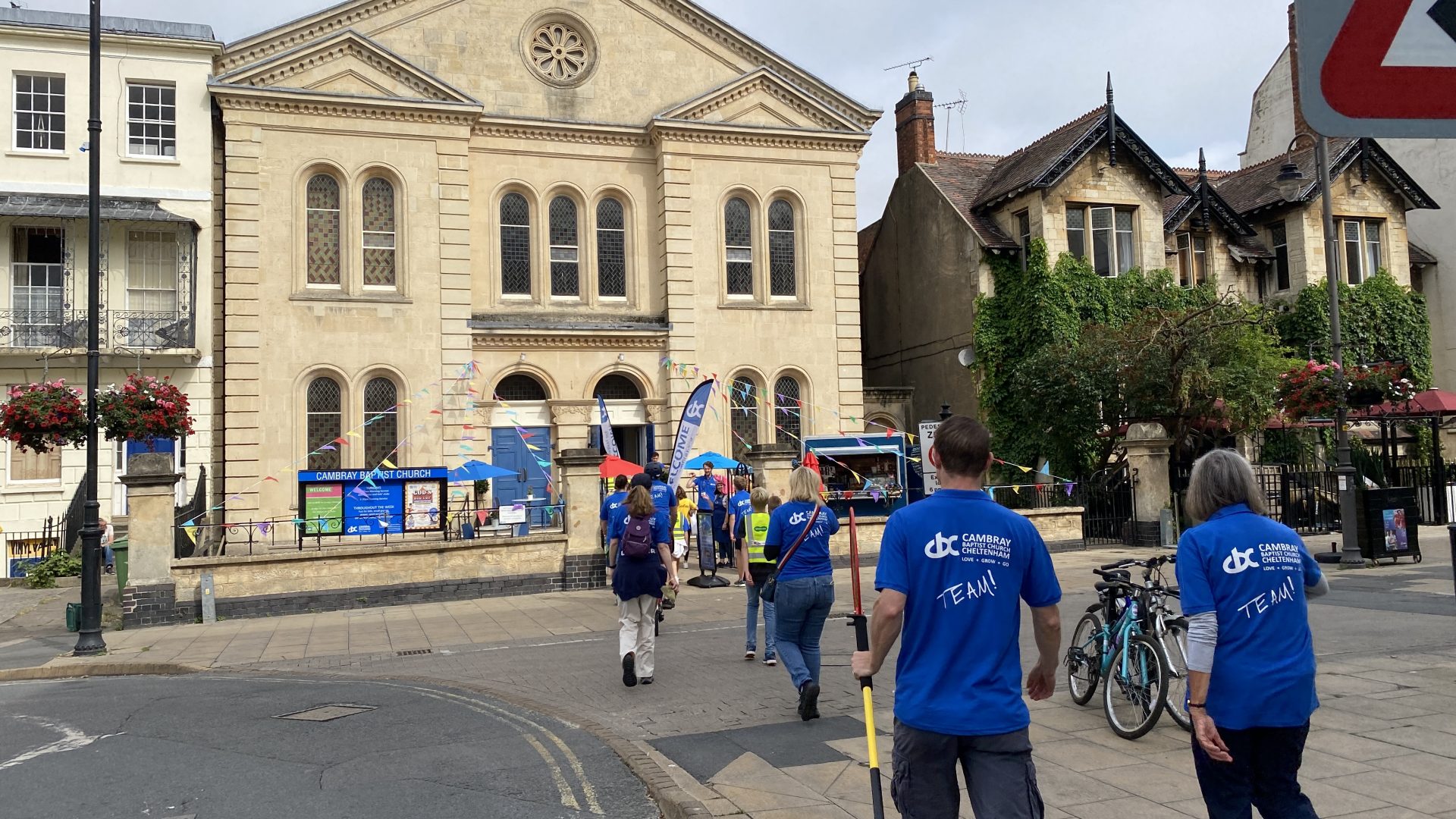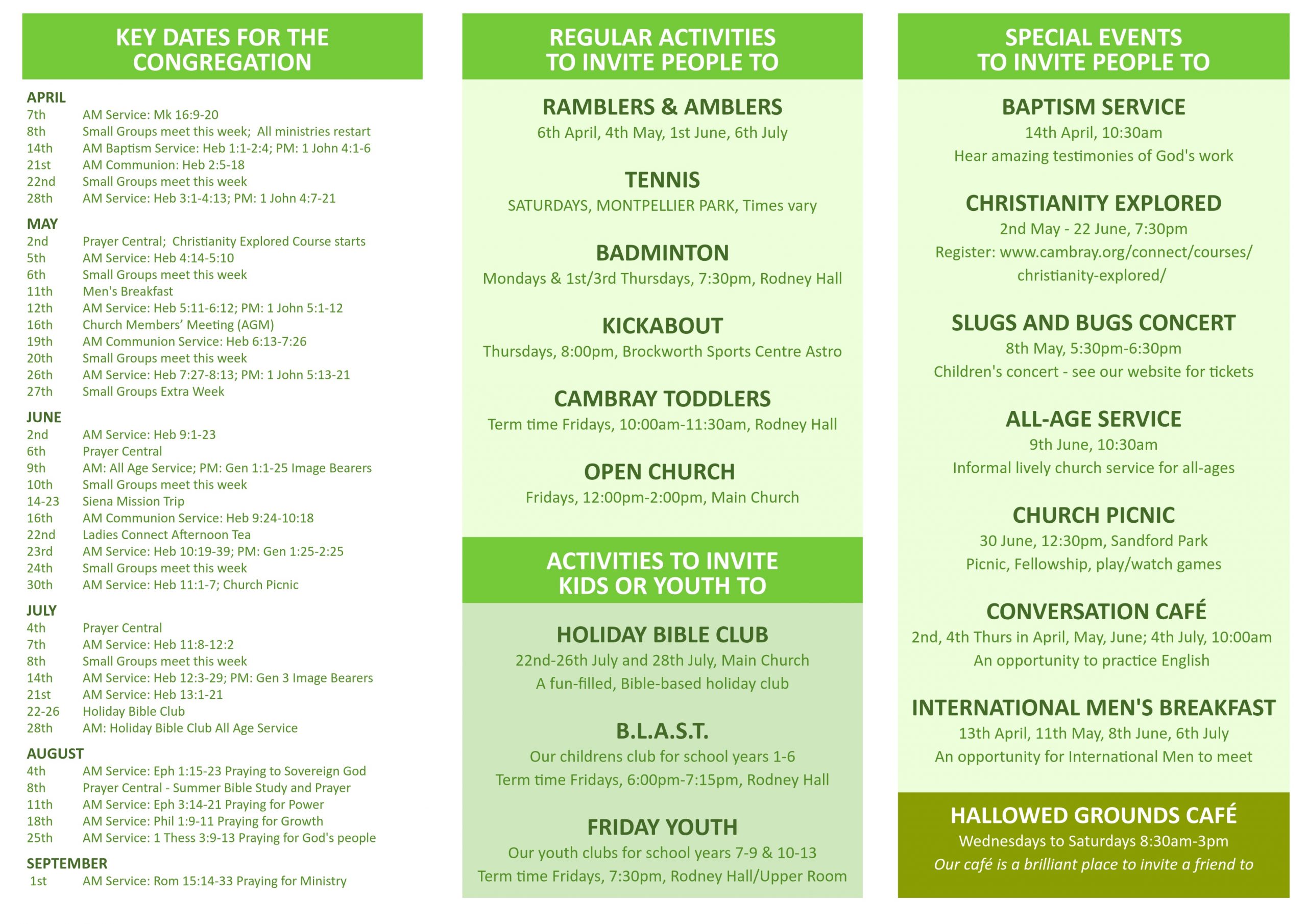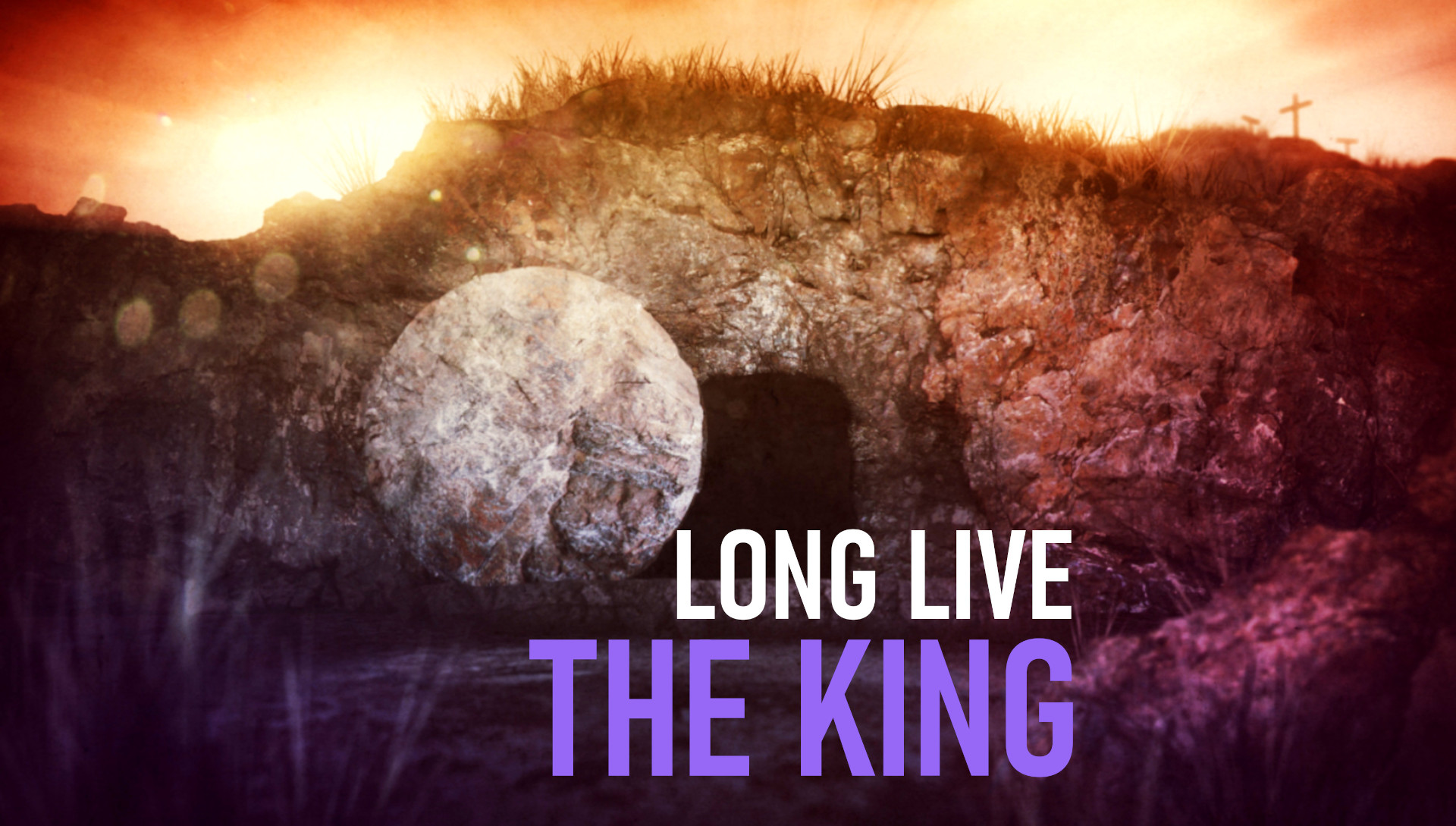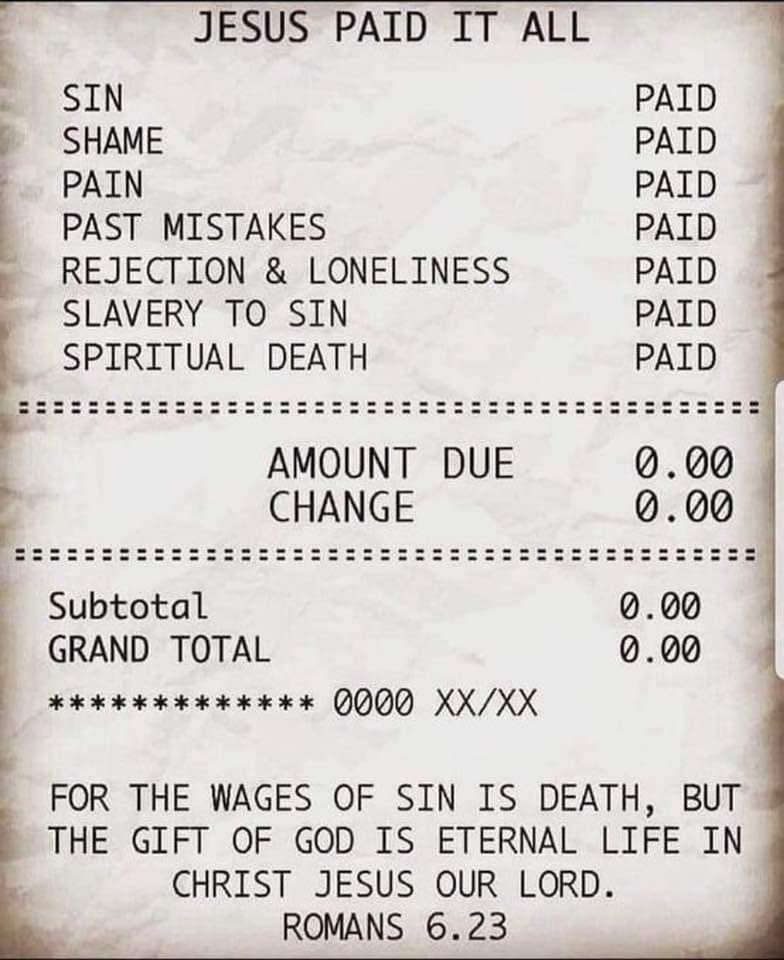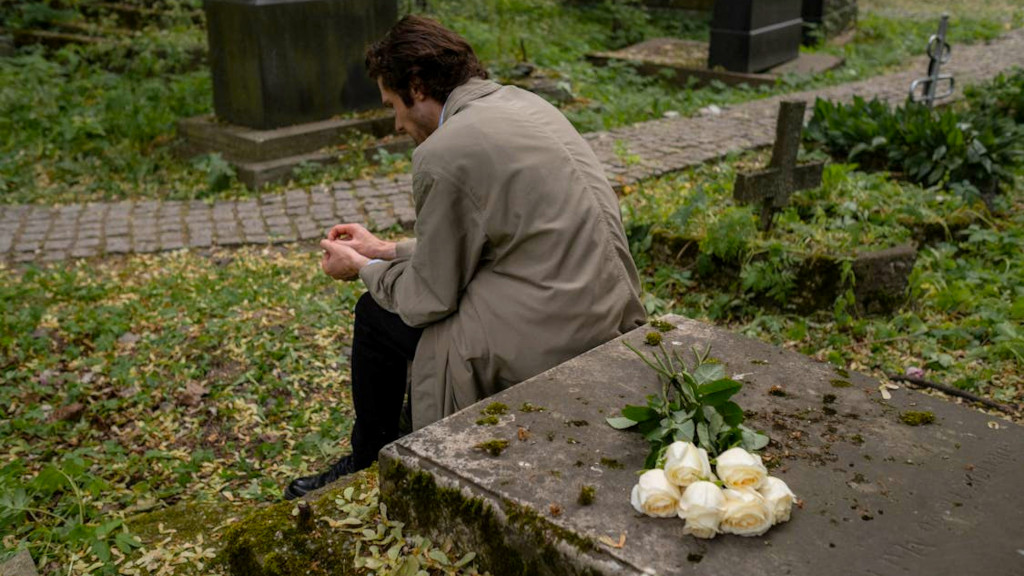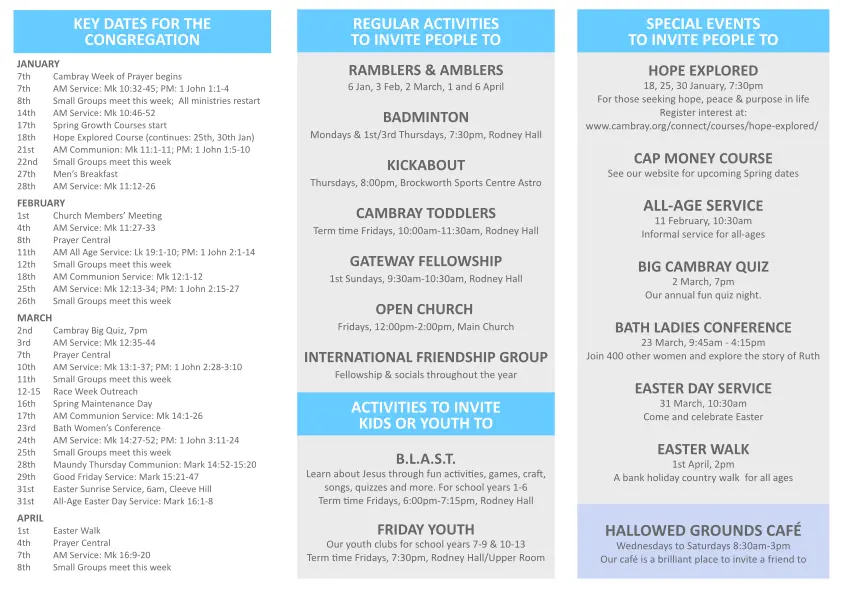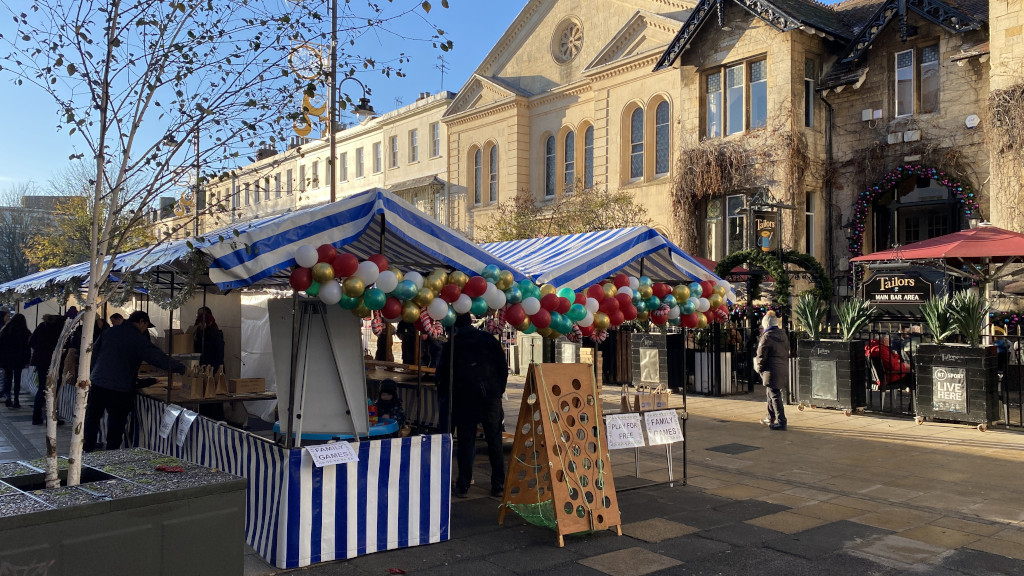Introduction
There is increasing concern and discussion among Christians about what are often referred to as ‘Generational Curses’. For some believers, who have been raised in families of drug or alcohol abuse, family breakdown, or deprivation, the thought of being under a ‘Generational Curse’ can cause real distress and concern, leading to desperation, a feeling of helplessness and to a life of fear. But this is in such contrast to the promises of the Gospel! Jesus reminded us that He had come “ to proclaim freedom for the prisoners and recovery of sight for the blind, to set the oppressed free, to proclaim the year of the Lord’s favour” (Luke 4:18-19). He was quoting from Isaiah 61:1-2, which tells us the purpose of God’s promised saviour – to bring freedom, and Jesus quoting this passage then immediately goes on to say (Luke 4:20) “Today this scripture is fulfilled in your hearing”.
“The Spirit of the Sovereign Lord is on me, because the Lord has anointed me to proclaim good news to the poor. He has sent me to bind up the broken-hearted, to proclaim freedom for the captives and release from darkness for the prisoners, to proclaim the year of the Lord’s favour”
Isaiah 61:1-2
So, how is the believer – one who has come to trust in Jesus as their Saviour – to react to the talk of ‘Generational Curses’?
As in all things that disturb our peace in Christ, we need to come to God’s word to find out what the truth is, and then to trust in His word. So let’s find out more from the Bible.
A wrong reading of the Bible
The first thing to note is that there is no such term as ‘Generational Curse’ used in the Bible. It is a term that people have created, but it’s not a Biblical term. We do find the word ‘curse’ in the Bible, but it is used very specifically. It is actually 4 Hebrew words, three of which are similar in emphasis and one which has a different purpose. When it talks about men or women using curses it is usually related to seeking to bring others down by spoken proclamation, though it is also used of swear words used to emphasise speech (as Peter did when he denied knowing Jesus with oaths and curses in Matt 26:74).
When used relating to God it is used in very specific circumstances to do with turning from the living God. It is used to sharply contrast to the blessing we have in walking with Him. This has been conflated with separate instances where the judgment of God is sometimes proclaimed seemingly against generations where the word ‘curse’ is not actually used.
So, we need to examine each of these situations to get to the truth, and when we do so we will see that each time we find in His word wonderful demonstrations of how His mercy breaks through even when hearts have been set against Him.
The Penalty of Sin
The first mention of something that might be considered a ‘Generational Curse’, in the sense that it doesn’t apply to an individual but also to their offspring, is God’s judgment on sin.
When Adam and Eve fell (Gen 3), all creation fell with them. God’s curse in Gen 3:14-19 is descriptive rather than prescriptive – God created all things good, and in His good creation there was blessing (Gen 1:28-31); Sin destroys, bringing death and destruction; And so Gen 3 describes clearly how all creation has moved from a position of God’s blessing to a new situation – under the ‘curse’ of sin, of which the ultimate outcome in this world is death (see also Rom 5:12-18). The signs of the fall of man would remain with man and woman as daily reminders of our fallen state.
But there was purpose – it was to drive us to find rescue and deliverance in God. Immediately after the ‘curse’, in Gen 3:21 there is the first sacrifice … God takes animal skins and makes garments for Adam and Eve and clothes them. Having just proclaimed an offspring of Adam and Eve who would ‘crush the serpent’s head’ (Gen 3:15), we are shown how this curse will one day be reversed, once for all, in Jesus and His death for us.
This is why Jesus says that He came to “proclaim freedom for the prisoners”! Romans 8:1 tells us unequivocally that “There is now no condemnation for those who are in Christ Jesus”. Why? Rom 8:2-3 “through Christ Jesus the law of the Spirit of life set me free from the law of sin and death … He condemned sin in sinful man.” Therefore, in Jesus, we have an unbreakable position – there is no curse left because of sin. Jesus is our ‘second Adam’ (1 Cor 15:45-49, Rom 5:19) and when we become Christians we move from being in Adam’s family (under the ‘curse’ of sin) to being in God’s family. We are no longer in the line of Adam, and so no longer under the ‘curse’ of sin (see also John 8:34-35). Eternally His, eternally secure.
When we become Christians we move from being in Adam’s family, under the ‘curse’ of sin, to being in God’s family. We are no longer in the line of Adam, and so no longer under the ‘curse’ of sin. We are eternally His, eternally secure.
The Penalty for Idol Worship
In the 10 commandments, we are told that we are not to make for ourselves any idol, and in that passage it says (Ex 20:4) “I, the Lord your God, am a jealous God, punishing the children for the sin of the fathers to the third and fourth generation of those who hate me”. This is repeated each time the commands are repeated (Ex 34:7, Num 14:18, Deut 5:9). It would appear to be a kind of ‘curse’, though the term ‘curse’ is never used.
But the point is that idolatry is pernicious … it is something that is easy to start but difficult to eradicate. And we see this in Israel’s history – Jeremiah speaks of Judah who, despite many calls back to the Lord, kept on with the idols they had set out across the countryside and within their homes. They ‘disguised’ their idolatry by attending the Temple and engaging in worship of God, but would not let go of their idols in their homes.
So, why does it then talk about God’s punishment down the generations?
The words in Ex 20:4 tell us the answer “to the third and fourth generation of those who hate me” – it’s not an arbitrary punishment of the innocent in other generations, it’s the reality of just punishment due to those in subsequent generations who, knowing the sin of their parents, continue to do the same things. This is made clear elsewhere in scripture. In Lev 26:40-42 God tells those who heard this command that when people turn in repentance for their idolatry, he will forgive them and treat them as His covenant people. In Jeremiah’s time people complained at the punishment for their sin, saying that God was unfair to bring the sins of the fathers on their children. But God tells them that this is wrong thinking – everyone is punished for their own sin (Jer 31:29-30), and repeats this same reassurance through the prophet Ezekiel (Eze 18:20). But this isn’t a later clarification … even when the law was given this principle of judgment on the individual for an individual’s actions is enshrined (see Deut 24:16).
in the same passages that God talks about the punishment for idolatry there is a greater promise alongside the penalty. In the very next verse God says: “… but showing love to a thousand generations of those who love me and keep my commandments”
Exodus 20:6
But this could still leave fear of judgment. However, wonderfully, in the same passages that God talks about the punishment for idolatry there is a greater promise alongside the penalty. In the very next verse God says: “… but showing love to a thousand generations of those who love me and keep my commandments” (Ex 20:6). God’s mercy is many, many times greater than His punishment! As with Adam and Eve at the fall, God holds out His offer of forgiveness and mercy which is abundantly available! This is God’s character – He proclaims Himself to Moses as “compassionate and gracious, slow to anger, abounding in love and faithfulness, maintaining love to thousands and forgiving wickedness, rebellion and sin” (Ex 34:6-7) before mentioning the punishment for rebellion through generations.
But there is even more amazing news – Jesus became the curse for us!
Gal 3:13 tells us “Christ redeemed us from the curse of the law by becoming a curse for us, for it is written: ‘Cursed is everyone who is hung on a tree’ ”. Because He became the curse, in Christ we are able to be freed from any penalty of sin. He took the penalty, and we go free!
So, for those who are in Christ, even past pagan practice or idol worship is covered by Jesus’ death. Sin has no grip on the believer – we are covered by His blood shed for our sin. As we were promised as the Psalmist looked forward to the work of Jesus “He will not always accuse, nor will he harbour his anger forever; he does not treat us as our sins deserve or repay us according to our iniquities. For as high as the heavens are above the earth, so great is his love for those who fear him; as far as the east is from the west, so far has he removed our transgressions from us.” (Ps 103:9-12).
For those who are in Christ, even past pagan practice or idol worship is covered by Jesus’ death. Sin has no grip on the believer – we are covered by His blood shed for our sin!
The Penalty of Betrayal
A third place that might be pointed to as a ‘Generational Curse’ is the penalty imposed on Amonites and Moabites (Deut 23:3-6) because of their betrayal of God’s people as His people sought to enter the Promised Land. As they approached, the Israelites asked to traverse their land to move towards the Jordan and cross into the Promised Land. The Amonites and the Moabites both refused to let Israel do so, and the Moabites hired Balaam to curse God’s people, though God prevented him from doing so (Num 22-24). God said that no Amonite of Moabite could enter the congregation of His people, even to the 10th Generation.
However, in the book of Ruth, we find in Ruth, who was a Moabitess, marrying Boaz and entering into the congregation of God’s people. More than that, her grandson David became King of Israel. And more than that, Jesus was of David’s line!
What we see in Ruth is the grace of God at work. Ruth abandoned her religious and national upbringing to become a follower of the Lord (Ruth 1:16-18), putting herself willingly under God’s law (Ruth 3:1-18; 4:1-12). God accepted her through His grace, which in Christ cancels the penalty of sin, and brought her into the family of God – and so much so that she was part of the line of the Saviour!
So, even the ‘generational’ proclamation of God concerning the Amonites and Moabites cannot trump the mercy of God through His grace!
Conclusion
We have seen that these potential instances of ‘Generational Curse’ are actually not ‘curses’ as we may understand the term. Furthermore, examples of ‘generational’ judgment are utterly subject to the grace of God, which for us is fully seen in Jesus. There is no situation which is not subject to God’s grace and mercy where there is repentance.
But, we need to add in one more thing.
Rom 8:31-39 tells us that no person, power, authority, angel or demon, not any creature can separate us from the love of God in Christ Jesus. It is explicit in identifying all powers and authorities. We know from Phil 2:9-11 that God exalted Jesus to the highest place, “that at the name of Jesus every knee must bow”. There is no authority, no curse, that is higher, more powerful or more authoritative than Jesus! We have absolute security in His loving care. We need not fear any curse, nor any other thing in all creation because we are His, and nothing can separate us from His love.
There is no authority, no curse, that is higher, more powerful or more authoritative than Jesus! We have absolute security in His loving care.







